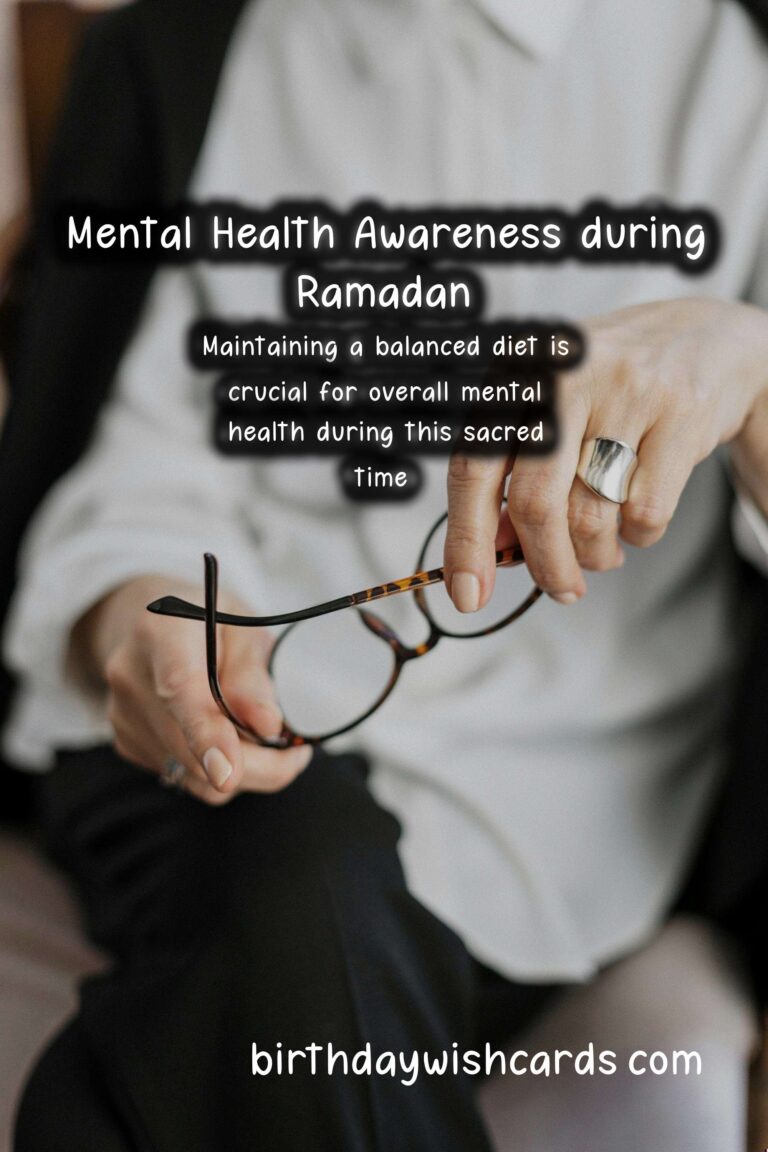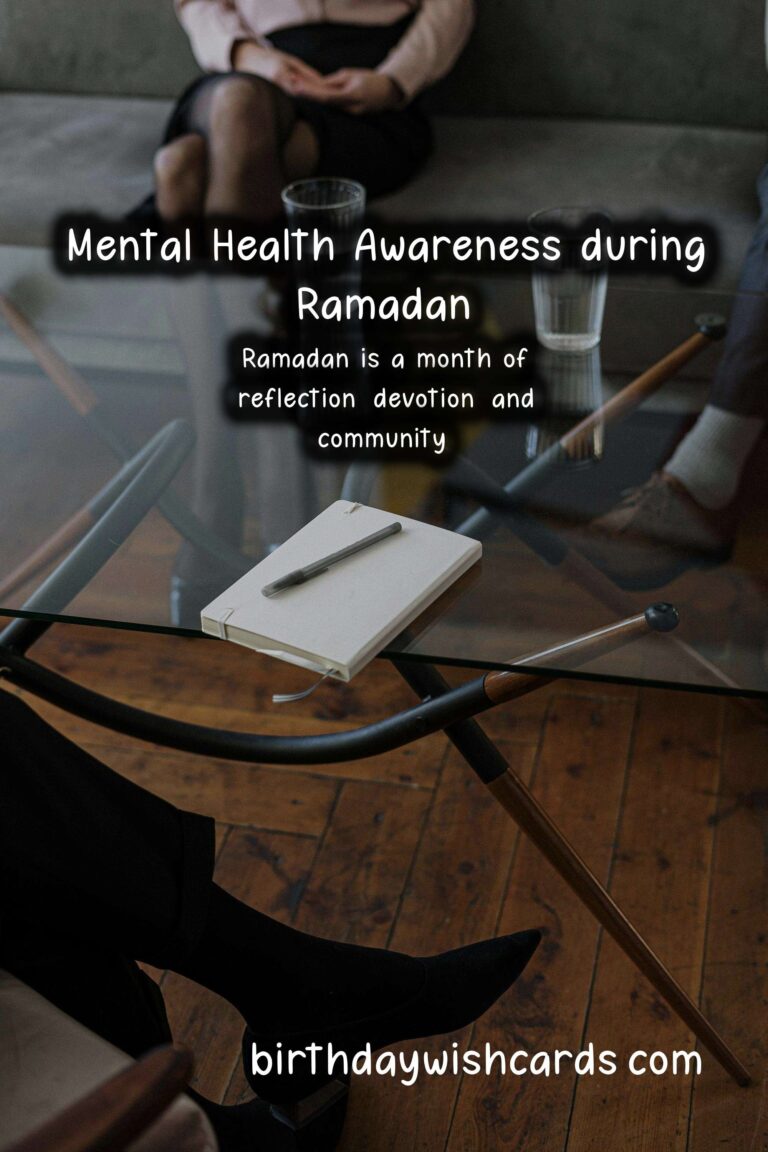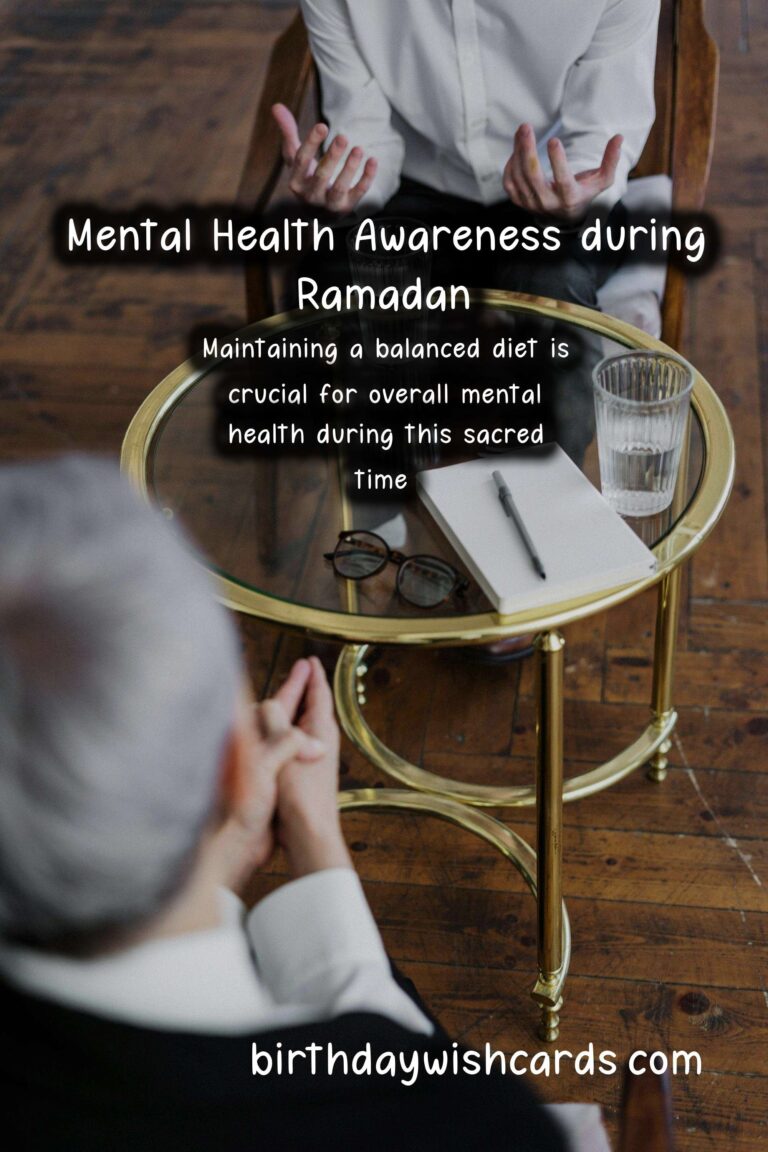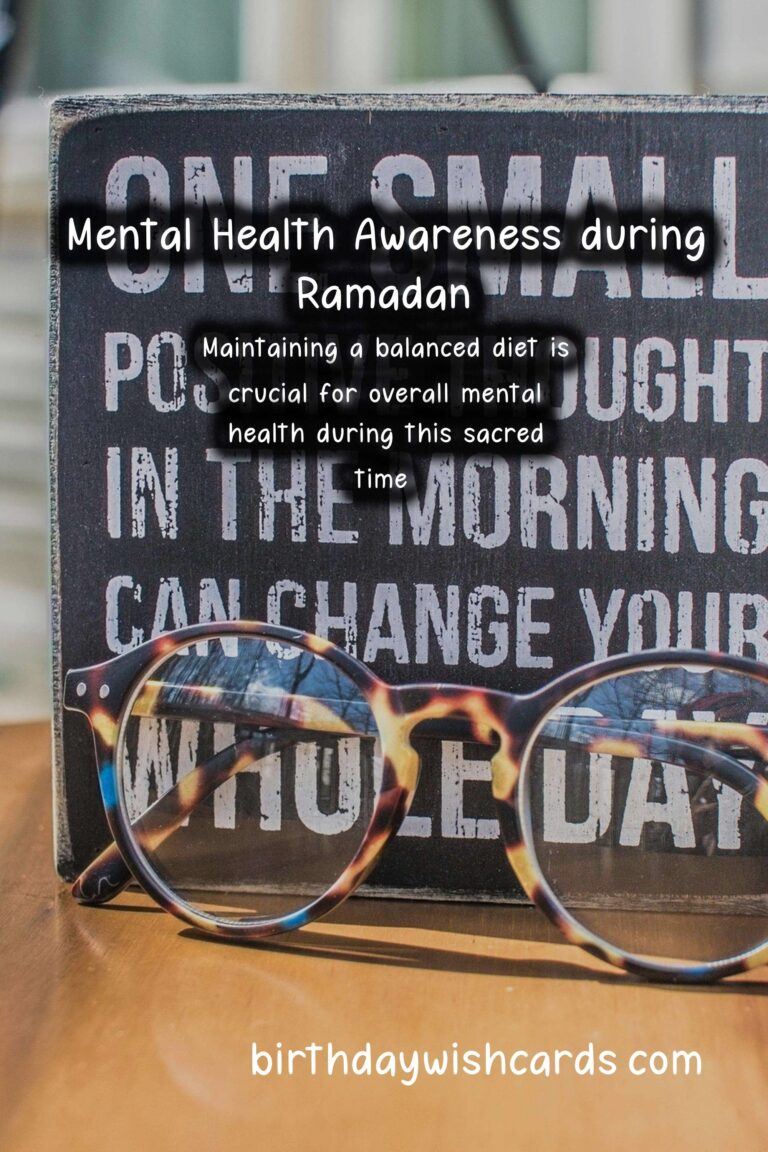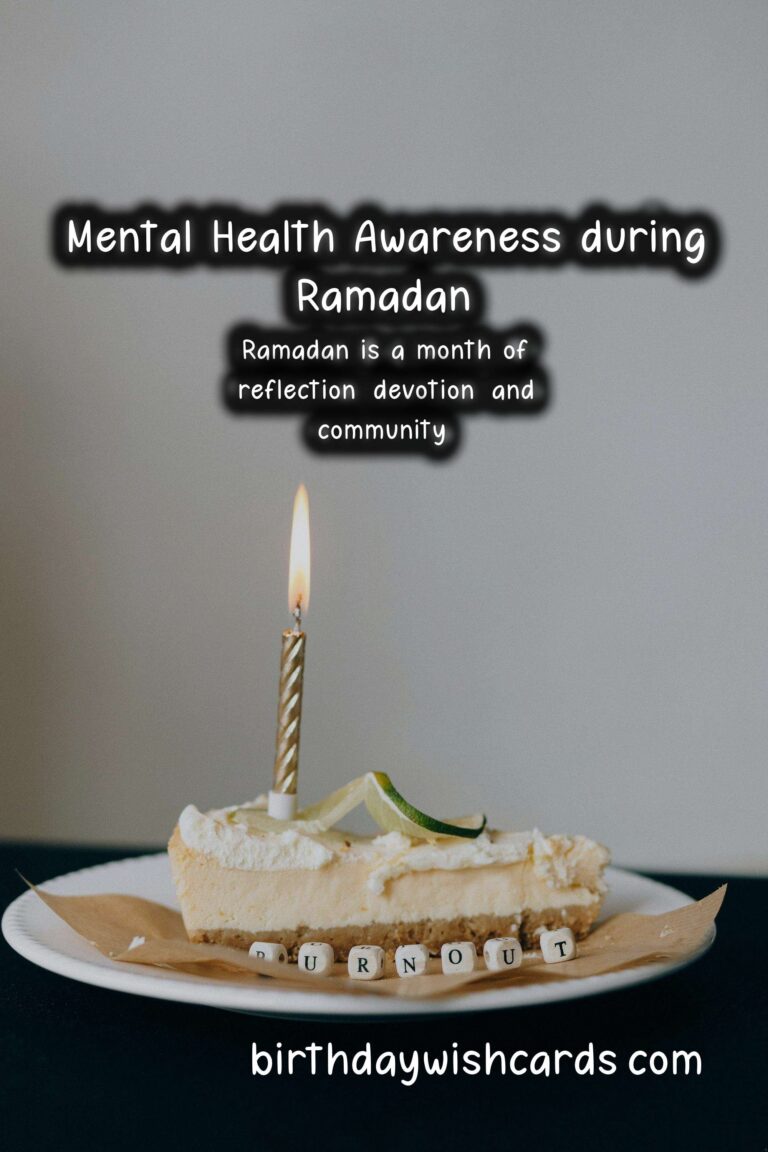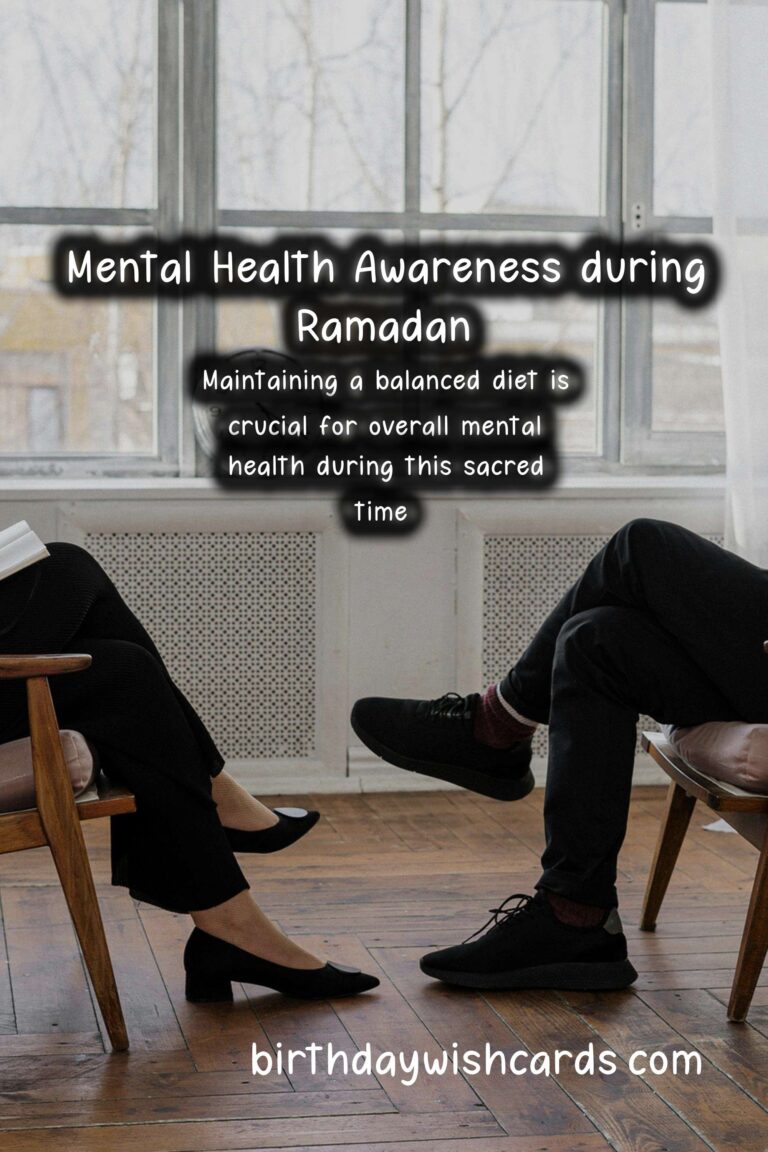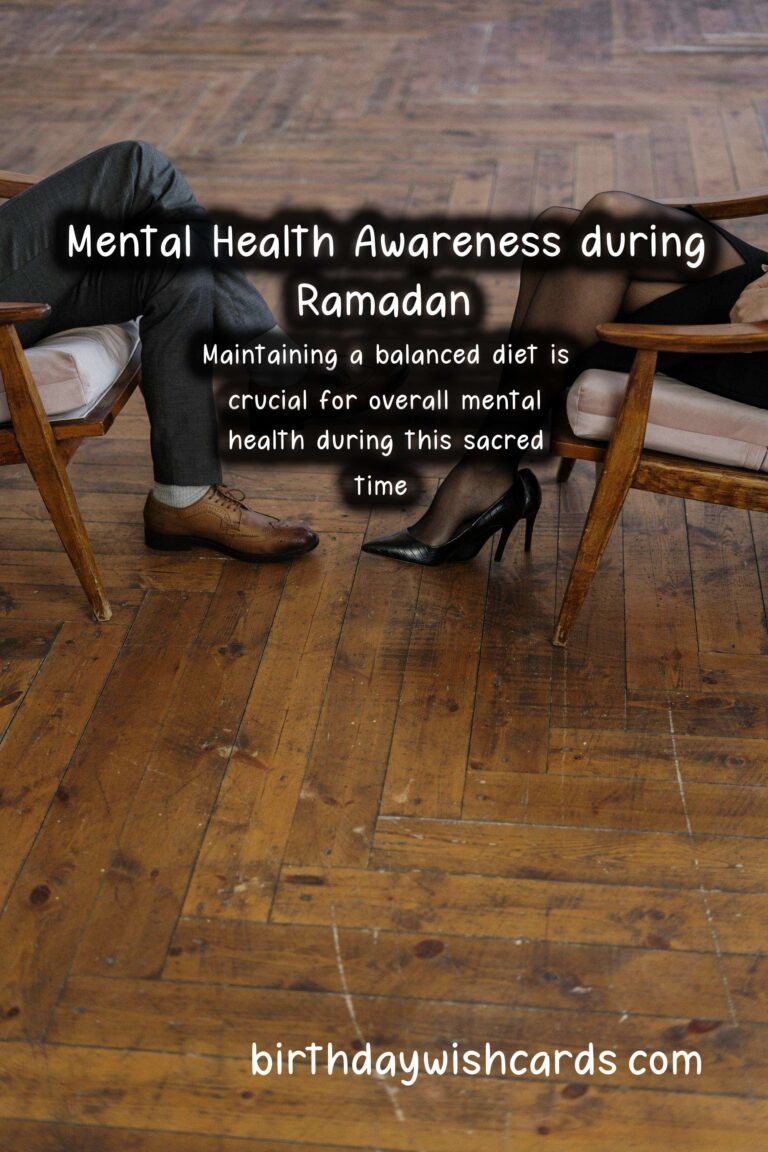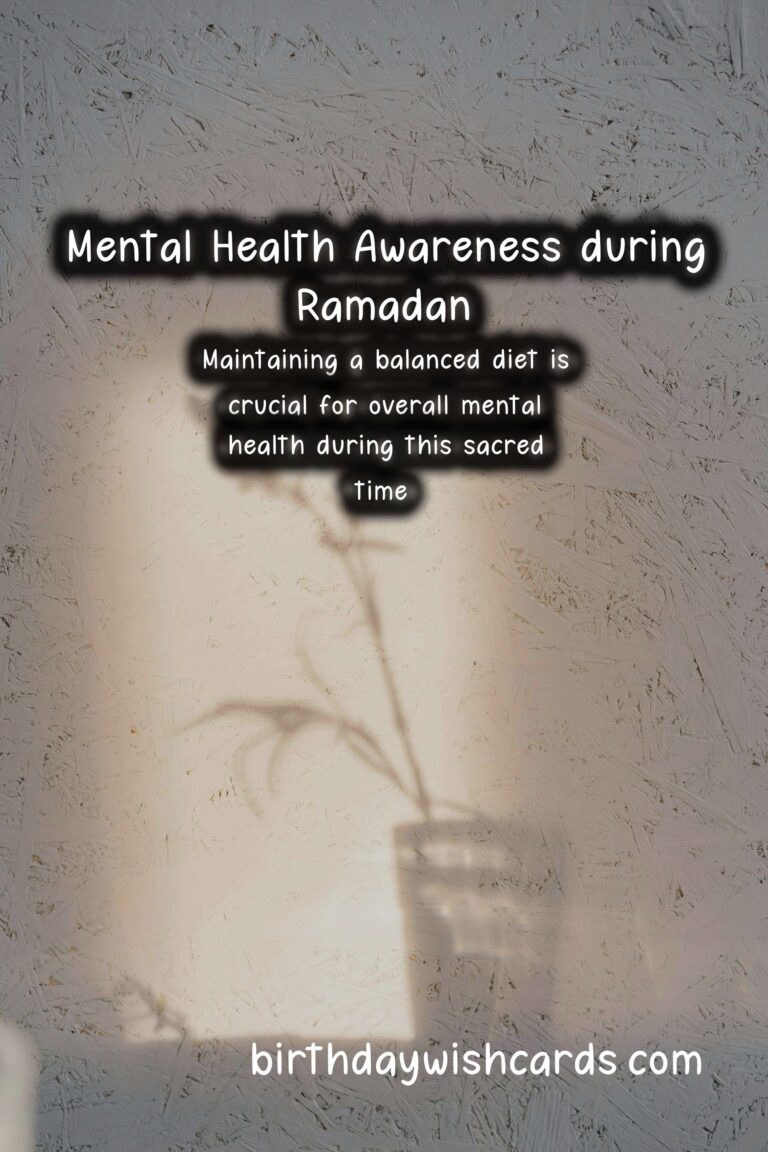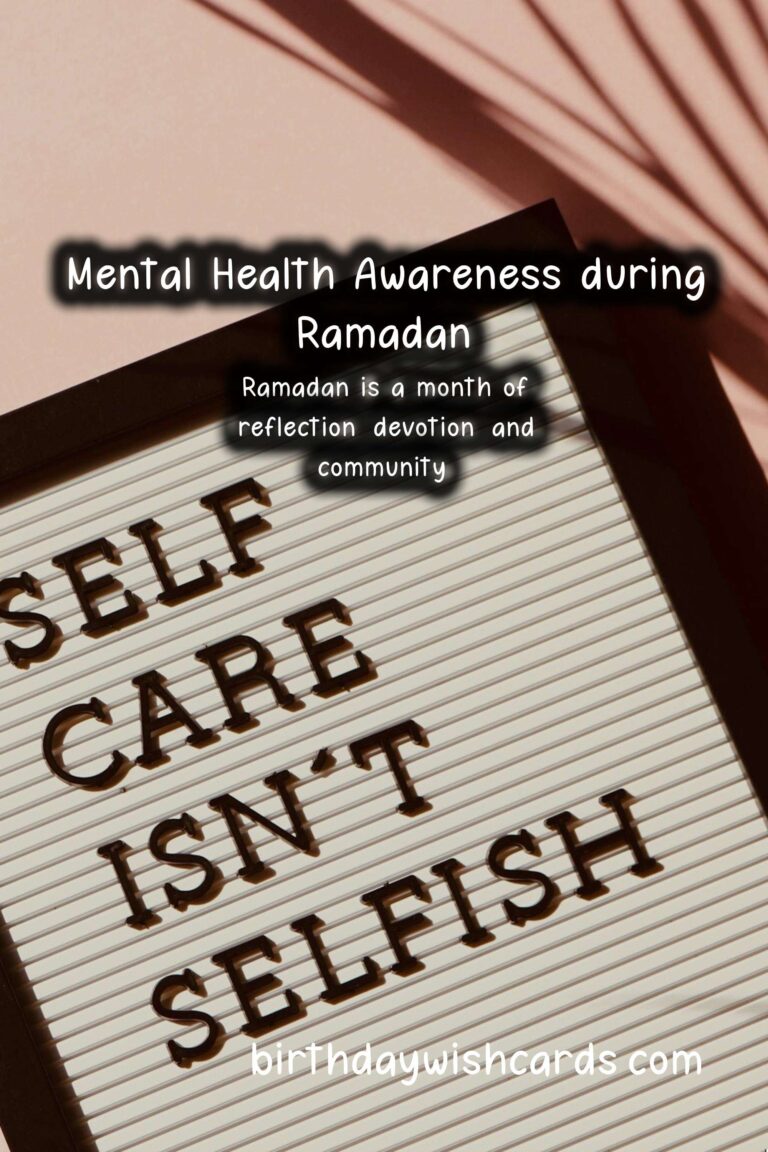
Ramadan is a month of reflection, devotion, and community. While it offers the opportunity for spiritual growth and connection with others, it can also bring about challenges related to mental health, especially with the fasting schedule and lifestyle changes. Therefore, it’s essential to focus on both spiritual and mental well-being during this sacred time.
Understanding Mental Health During Ramadan
The significance of Ramadan extends beyond just fasting; it’s a time for introspection and mindfulness. For many, spiritual revitalization comes with increased prayers and community gatherings. However, the alteration in daily routines can sometimes lead to stress, anxiety, and feelings of isolation. Recognizing these feelings is the first step toward maintaining a healthy mindset.
1. Maintain a Balanced Diet
While it may be tempting to indulge in fried snacks and sugary treats during iftar, a balanced diet is crucial for overall mental health. Foods rich in nutrients such as fruits, vegetables, and whole grains can help regulate mood and energy levels.
2. Stay Hydrated
Dehydration can affect your mood and cognitive function. Make sure to drink plenty of water between iftar and suhoor. This will help keep your mind clear and your spirits high throughout Ramadan.
3. Establish a Routine
With altered sleeping and eating schedules, it’s important to establish a new routine that fits the context of Ramadan. Try to keep a consistent sleep schedule to promote mental clarity and emotional stability.
4. Practice Mindfulness and Meditation
Taking a few moments each day for mindfulness or meditation can greatly benefit your mental health. It allows you to connect with your inner self and process any emotions that may arise during this spiritually significant month.
5. Engage in Community Activities
Ramadan is largely about community and relationships. Participate in local events, volunteer, or gather with friends and family. These activities can provide emotional support and enhance your sense of belonging.
6. Set Realistic Goals
Many people set high expectations for themselves during Ramadan. Instead, focus on realistic goals that can help you improve your spiritual life without feeling overwhelmed.
7. Seek Professional Help if Needed
If you experience significant stress, anxiety, or feelings of sadness that persist, it may be helpful to talk to a mental health professional. Seeking help is a sign of strength and can provide the support you need.
8. Avoid Overcommitting
While it is admirable to want to participate in various activities, overcommitting can lead to burnout. Learn to say no when necessary and focus on what truly enriches your Ramadan experience.
9. Use Technology Wisely
In today’s world, technology can both help and hinder your mental health during Ramadan. Use apps or online resources to enhance your spiritual practice, but limit time on social media to avoid comparisons that can lead to feelings of inadequacy.
10. Reflect on Your Journey
At the end of each Ramadan, take time to reflect on your experiences. What did you learn about yourself? How can you carry those lessons throughout the year? This reflection can help create a lasting impact on your mental health.
Conclusion
Ramadan is a unique time that offers incredible opportunities for spiritual and personal growth. By taking steps to prioritize mental health, you can ensure that your Ramadan experience is fulfilling and enriching. Remember, it’s not just about fasting but nurturing your mind and spirit alongside your body.
Ramadan is a month of reflection, devotion, and community. Maintaining a balanced diet is crucial for overall mental health during this sacred time. 
